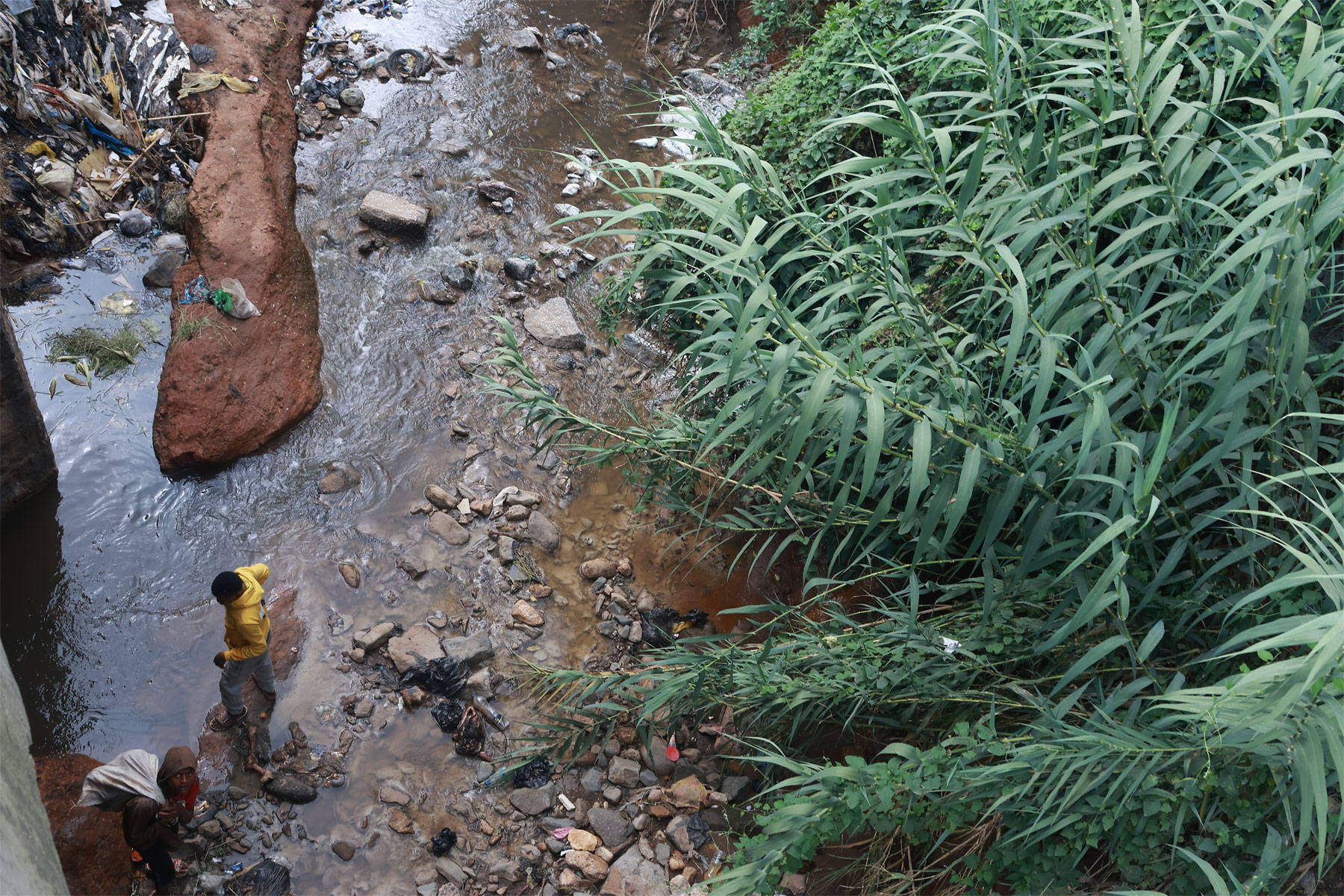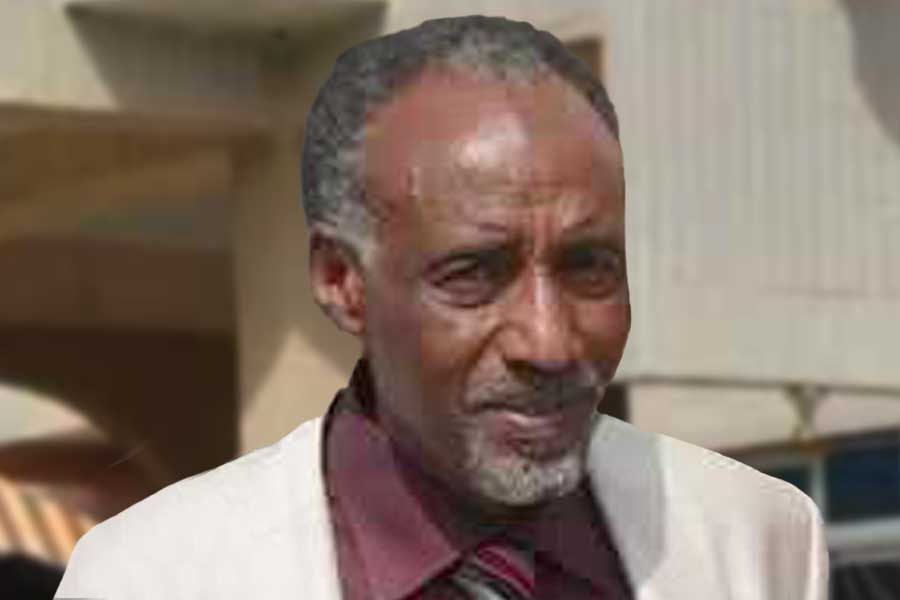
Agenda | May 11,2024
Dec 19 , 2020
By Eden Sahle
Sometimes our social systems have a slanted negative view of others that injures them almost beyond repair. Unfortunately, contributing to this are usually the family members of the very people who should do the nurturing and protecting.
A victim of such social scarring is a tutor I had in high school.
When my father came to know him, he was a nervous man struggling to overcome setbacks in his life. His parents had suddenly gotten divorced. Shortly after, his father remarried. Hurt by this and unable to focus, he was fired from his job at Addis Abeba University. As he was desperately looking to support himself, my father offered him a job as my tutor.
He accepted, and we met daily after school. He was brilliant. I enjoyed solving math and physics puzzles with him.
Even then, it was clear that his sadness was eating him alive. It was obvious to anyone but him. He did not just refuse help but also thought he was proving his worth to his family. He spoke about the verbal abuse he gets from them, how they saw him as a failure and a burden. He did not have friends and family that he could count on. He hated himself, his life.
His mental and physical health was deteriorating before our eyes. His situation affected his everyday life, influencing how he responded to stress, how he made decisions and how he interacted with others. He lost his sense of purpose in life. Eventually, a year after he started working as my tutor, he stopped coming. We checked with his family; they told us he stopped living with them and that they do not know his whereabouts.
Over a decade and a half later - a few weeks ago - I saw him sitting on the streets, talking loudly and crying heavily. I could not believe my eyes. The respectful, intelligent young man who came to my home daily to help me excel academically now sleeps on the streets. His worn-out clothes were covered with dirt, and the plastic bottle he had with him reeked of alcohol. That reserved and calm man now slurs at passersby in Bole.
I approached and greeted him. He gazed at me for long without saying anything; then he quickly ran away. That was the last I have seen of him.
The alcohol abuse made sense. Substance abuse is linked to chronic stress and poverty. Lack of proper parental support, risk awareness, healthcare and community organisations lead to alternative stress coping mechanisms that do more damage – it was how he had slipped through the cracks.
Substance abuse can have a devastating impact on health, family and society. The consequence leads to a distorted psychological, physical and mental well-being of the user. From decreased self-esteem to social isolation to serious physical injuries, drugs and alcohol are significant health hazards. The immediate effects here can potentially be remedied when substance abuse stops, but the mental and social trauma can be permanent.
In life, some level of trauma is unavoidable for everyone. We all get hurt one way or another, although the intensity may significantly differ. It is also the case that the age at which a person experiences trauma influences how big of an impact it will have on them. Trauma experienced early in life has a bigger chance of causing problems throughout a person's life. The younger the victim, the more devastating outcome the crisis brings.
Mentally unwell people are not mentally and physically ready to support themselves in the social systems “normal” people have erected. This is a reflection of the fact that, while people with disorders such as schizophrenia are not less normal or abled, they will inevitably have a hard time coping with the prevailing social environment.
In Ethiopia, there is very little understanding of this. As a result, parents provide little emotional support to their children, as many are in great financial and emotional distress themselves. But it does not mean families and society at large should neglect its responsibility.
Solving the problem from its source is vital. It starts with parents, who themselves should be provided with support in the form of civic organisations and government institutions.
PUBLISHED ON
Dec 19,2020 [ VOL
21 , NO
1077]

Agenda | May 11,2024

Life Matters | Apr 10,2021

Radar | Nov 26,2022

International Stories | Apr 07,2020

Films Review | Apr 30,2021

Sunday with Eden | Aug 16,2020

Radar | Sep 24,2022

Radar | Mar 26,2022

Obituary | May 23,2020

My Opinion | Apr 22,2022

My Opinion | 131970 Views | Aug 14,2021

My Opinion | 128359 Views | Aug 21,2021

My Opinion | 126297 Views | Sep 10,2021

My Opinion | 123913 Views | Aug 07,2021

Dec 22 , 2024 . By TIZITA SHEWAFERAW
Charged with transforming colossal state-owned enterprises into modern and competitiv...

Aug 18 , 2024 . By AKSAH ITALO
Although predictable Yonas Zerihun's job in the ride-hailing service is not immune to...

Jul 28 , 2024 . By TIZITA SHEWAFERAW
Unhabitual, perhaps too many, Samuel Gebreyohannes, 38, used to occasionally enjoy a couple of beers at breakfast. However, he recently swit...

Jul 13 , 2024 . By AKSAH ITALO
Investors who rely on tractors, trucks, and field vehicles for commuting, transporting commodities, and f...

Jul 5 , 2025
Six years ago, Ethiopia was the darling of international liberal commentators. A year...

Jun 28 , 2025
Meseret Damtie, the assertive auditor general, has never been shy about naming names...

Jun 21 , 2025
A well-worn adage says, “Budget is not destiny, but it is direction.” Examining t...

Jun 14 , 2025
Yet again, the Horn of Africa is bracing for trouble. A region already frayed by wars...

Jul 6 , 2025 . By BEZAWIT HULUAGER
The federal legislature gave Prime Minister Abiy Ahmed (PhD) what he wanted: a 1.9 tr...

Jul 6 , 2025 . By YITBAREK GETACHEW
In a city rising skyward at breakneck speed, a reckoning has arrived. Authorities in...

Jul 6 , 2025 . By NAHOM AYELE
A landmark directive from the Ministry of Finance signals a paradigm shift in the cou...

Jul 6 , 2025 . By NAHOM AYELE
Awash Bank has announced plans to establish a dedicated investment banking subsidiary...